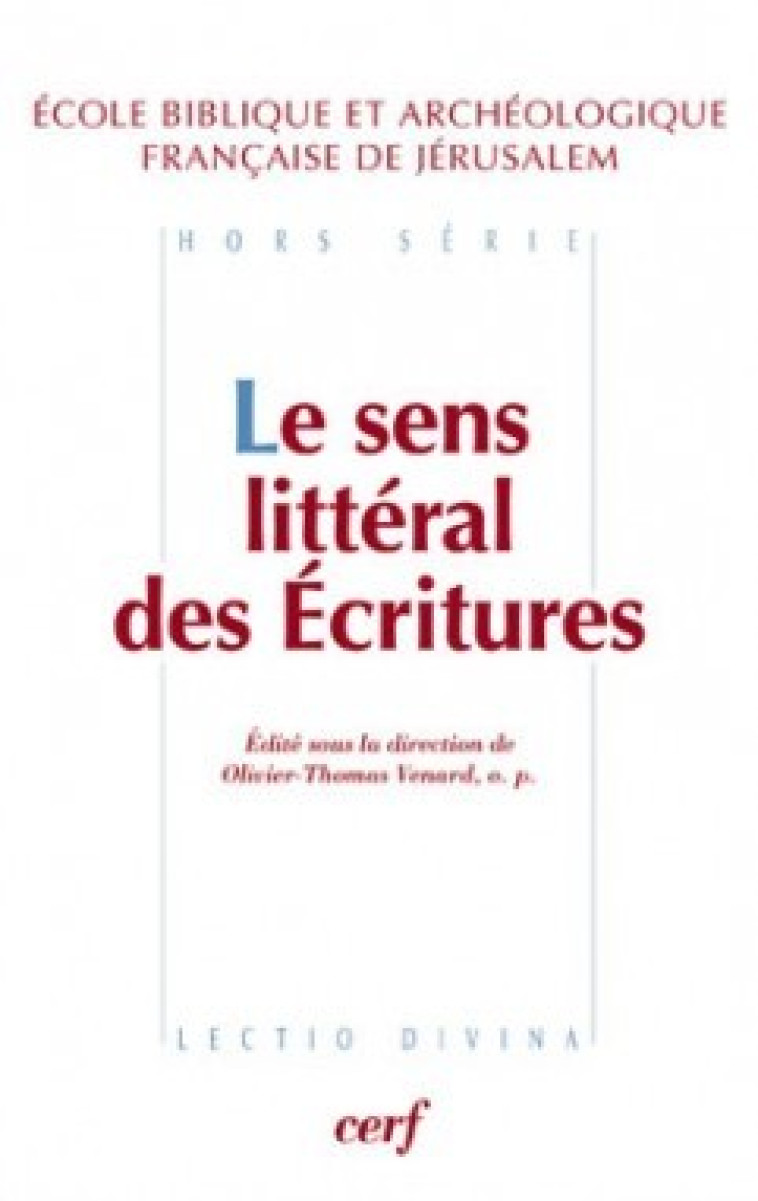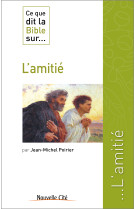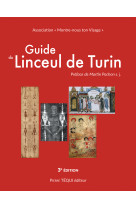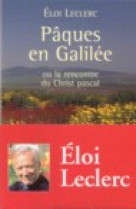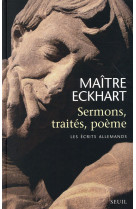Le sens littéral des écritures
ebaf
Où faut-il chercher le sens littéral de l'Écriture : plutôt du côté de l'histoire dont le texte parle, ou plutôt du côté des effets littéraires qu'il produit ? Membres ou invités de l'École biblique et archéologique française de Jérusalem dans le cadre du projet scientifique « La Bible en ses Traditions », douze universitaires, de huit nationalités différentes, parcourent ici l'espace qui va d'une approche du sens littéral à l'autre. Appuyé sur des exemples précis tirés de toute la Bible, chacun s'efforce de donner sa définition du sens littéral et les raisons qui le poussent à l'adopter. Exégèse, histoire de l'exégèse, traductologie, philologie, assyriologie, patrologie, théologie, littérature comparée, études médiévales, philosophie du langage, herméneutique, théologie sont convoquées pour scruter le foisonnement de la lecture littérale de l'Écriture à travers les âges, et élaborer la problématique actuelle du sens littéral.
--
Where should we seek the literal meaning of the Scriptures? In the history of the periods the texts refer to, or in the literary effects they produce? Members and guests of the French Biblical and Archaeological School of Jerusalem together with twelve academics of eight different nationalities, working in the context of the scientific project ‘The Bible in its Traditions', explore a domain that spans from the literal approach to the other. Based on precise examples from the Bible, each one strives to give his definition of the literal meaning and his reasons for adopting it. Exegesis, history of exegesis, traductology, philology, Assyriology, patrology, theology, comparative literature, medieval studies, philosophy of language and hermeneutics are all employed to investigate the multiple possibilities of literal readings of the Scriptures through the ages, and to elaborate a modern problematic of literal meaning.

